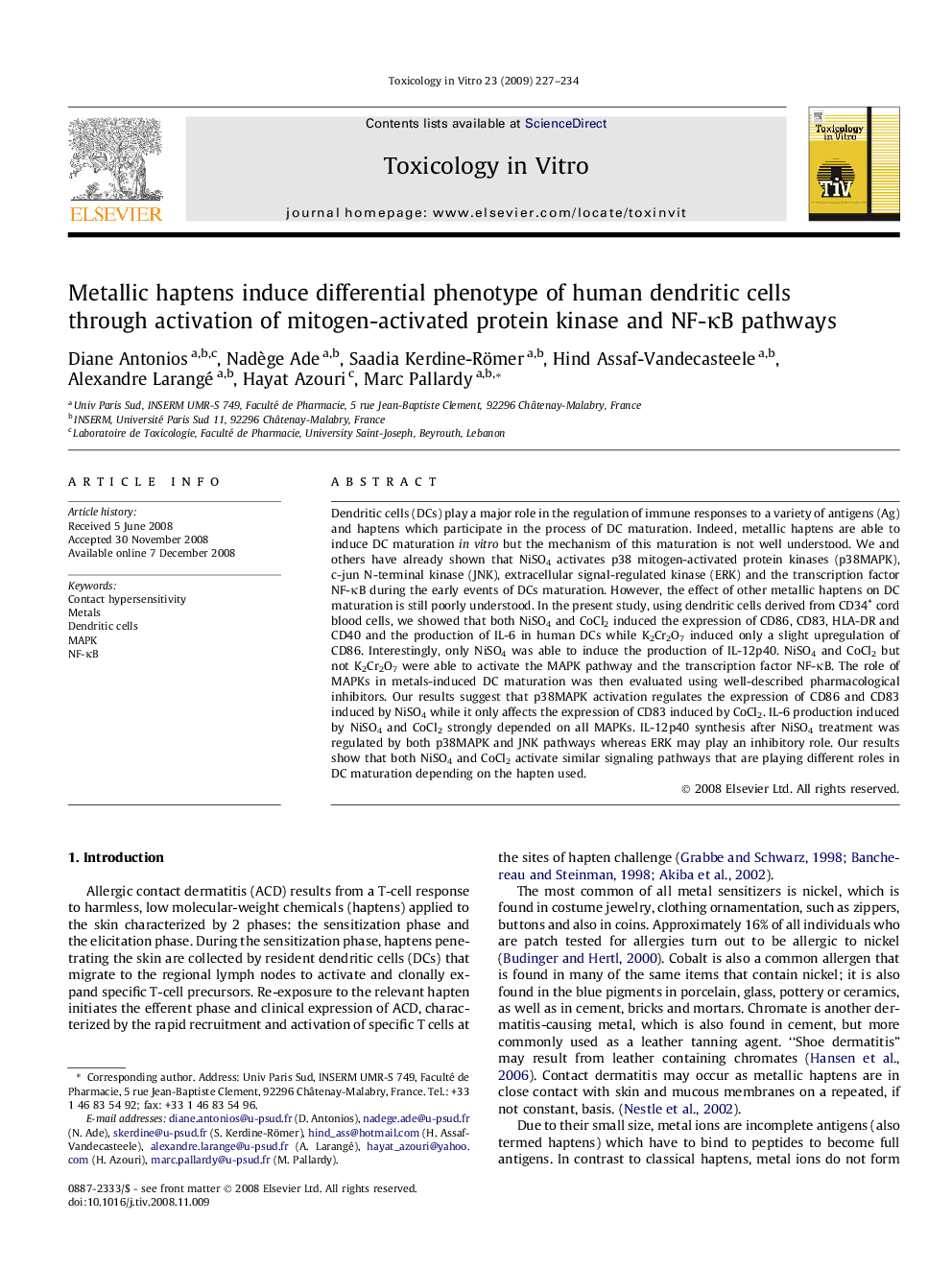| Article ID | Journal | Published Year | Pages | File Type |
|---|---|---|---|---|
| 2603125 | Toxicology in Vitro | 2009 | 8 Pages |
Dendritic cells (DCs) play a major role in the regulation of immune responses to a variety of antigens (Ag) and haptens which participate in the process of DC maturation. Indeed, metallic haptens are able to induce DC maturation in vitro but the mechanism of this maturation is not well understood. We and others have already shown that NiSO4 activates p38 mitogen-activated protein kinases (p38MAPK), c-jun N-terminal kinase (JNK), extracellular signal-regulated kinase (ERK) and the transcription factor NF-κB during the early events of DCs maturation. However, the effect of other metallic haptens on DC maturation is still poorly understood. In the present study, using dendritic cells derived from CD34+ cord blood cells, we showed that both NiSO4 and CoCl2 induced the expression of CD86, CD83, HLA-DR and CD40 and the production of IL-6 in human DCs while K2Cr2O7 induced only a slight upregulation of CD86. Interestingly, only NiSO4 was able to induce the production of IL-12p40. NiSO4 and CoCl2 but not K2Cr2O7 were able to activate the MAPK pathway and the transcription factor NF-κB. The role of MAPKs in metals-induced DC maturation was then evaluated using well-described pharmacological inhibitors. Our results suggest that p38MAPK activation regulates the expression of CD86 and CD83 induced by NiSO4 while it only affects the expression of CD83 induced by CoCl2. IL-6 production induced by NiSO4 and CoCl2 strongly depended on all MAPKs. IL-12p40 synthesis after NiSO4 treatment was regulated by both p38MAPK and JNK pathways whereas ERK may play an inhibitory role. Our results show that both NiSO4 and CoCl2 activate similar signaling pathways that are playing different roles in DC maturation depending on the hapten used.
